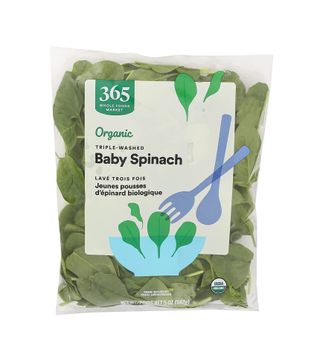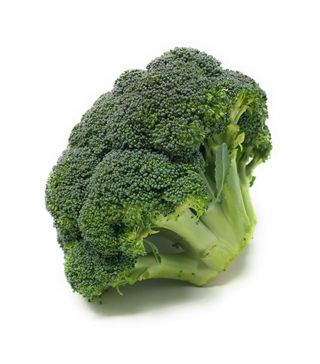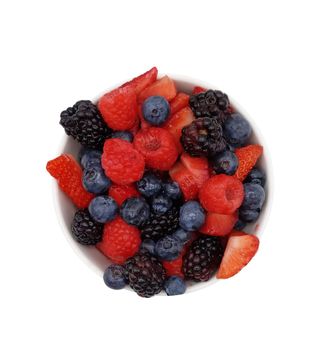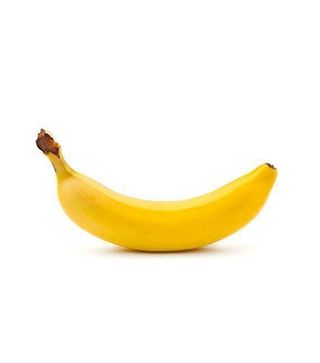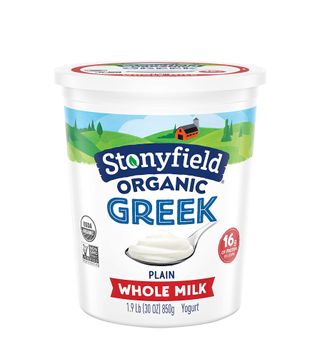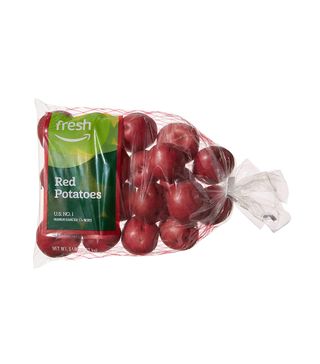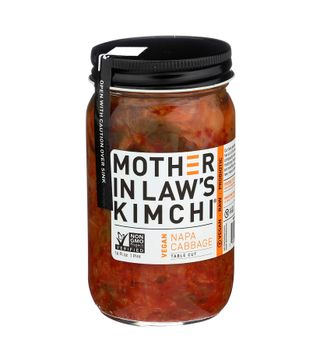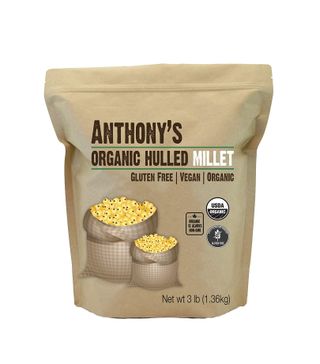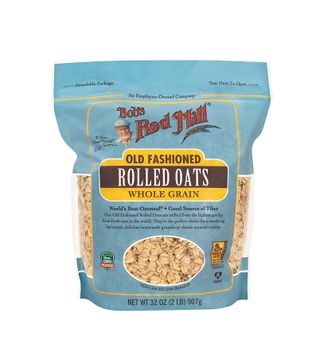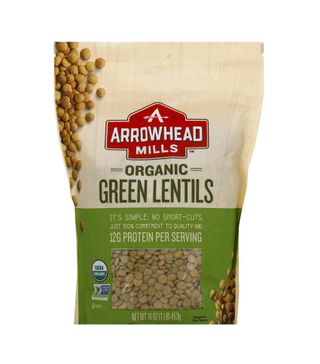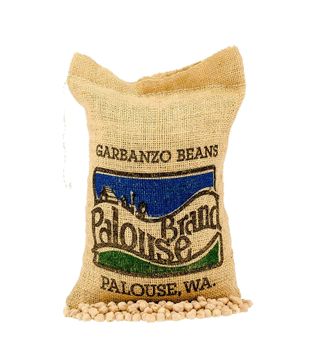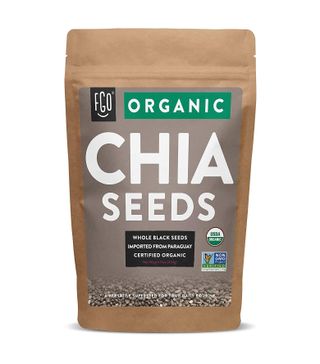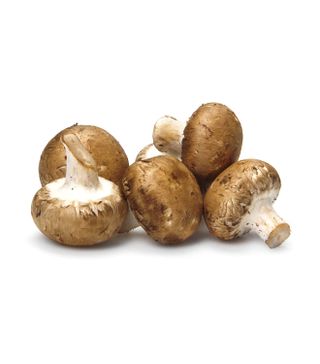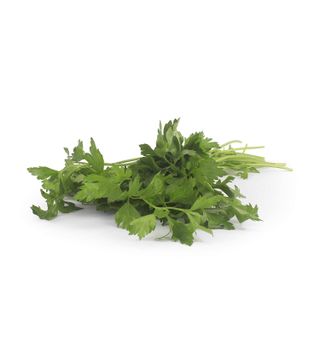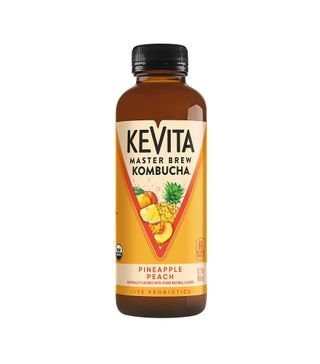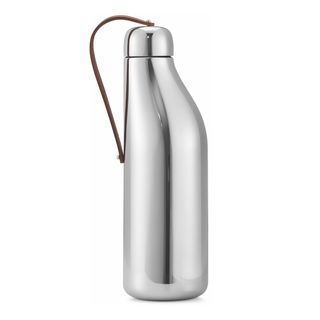11 Foods That Will Get Your Gut Health Back on Track
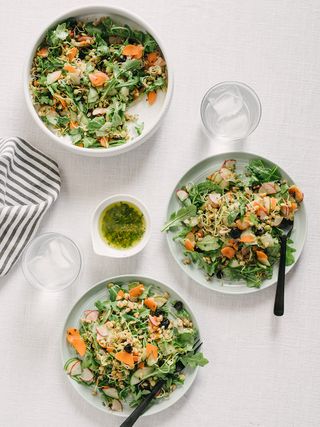
When it comes to gut health, you probably know by now that it's important. And if you didn't, well, now you do. The state of your gut affects so many different parts and systems of your body, not only your digestive system but also your mental health, skin, immune system, and more. So yeah, you want to make sure your gut is in good shape.
One big factor that contributes to your gut health? Food, of course. You want to make sure you fill your body with the right ingredients and nutrients so that the good bacteria can thrive and the bad bacteria stay away. "The primary role of your gut is to digest and absorb nutrients," explains Alli Magier, MS, RDN, LDN, a registered dietitian at Rooted Wellness. "Food is medicine, so if you cannot properly digest and absorb it, it may result in negative side effects for your health. It is now widely accepted that your gut not only affects the digestion and absorption of nutrients but also can manifest in poor metabolic health, hormonal health, skin health, and mental health. Your gut microbiome also plays a critical role in modulating one's risk for various chronic diseases like inflammatory bowel disease, obesity, diabetes, and cardiovascular disease."
And if you eat foods that challenge the gut, that can increase the likelihood of unpleasant symptoms like gas and heartburn and risk worsening its stability. "Our state of health can change at any time, for better or for worse," says Tina Ralutz, MS, RDN, a health coach at Parsley Health. "Supporting the gut by including foods that keep it functioning well, whether it's doing fine or giving us trouble, is a high form of self-care. Eating with your gut in mind is one of the kindest things you can do for your body. If you notice your digestion changing, it can be time to eat soothing foods and speak with a healthcare practitioner."
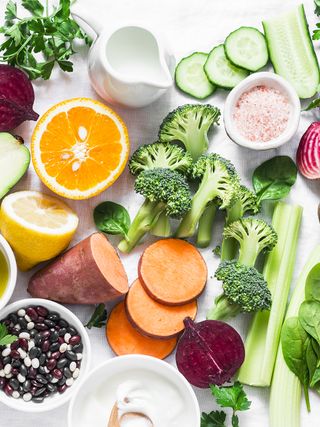
So which foods are good for the gut? "The gut thrives on foods like fruits, vegetables, whole grains, nuts, seeds, and also fermented foods with live organisms," explains Valerie Agyeman, RD, a dietitian and the host of The Flourish Heights Podcast. "For example, antioxidants and polyphenols help reduce inflammation in the body and fight disease, while probiotics increase the good bacteria in the gut and keep it at a good balance."
One recommendation that Magier gives her clients is to name the ingredients on their plate—the more single-ingredient foods, the better. "For example, a plate filled with salmon, quinoa, and broccoli has roughly three main ingredients! If you are eating a premade frozen meal from the grocery store, there is no way you can name all the ingredients in it just by looking at it," Magier says. "Research has shown that your gut flora can change quite rapidly, so load on those veggies, and reap immediate benefits."
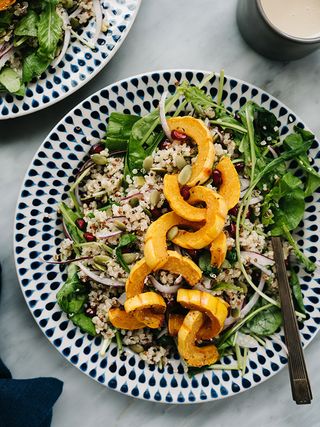
If you're considering changing up your diet with a healthy gut in mind, you're going to want to be mindful of a couple of things. One thing is if you're adding more fiber into your diet, increasing your fiber intake too quickly can result in unpleasant side effects like bloating, gas, and constipation, Magier advises. "I recommend gradually boosting your fiber intake and spreading foods rich in fiber like fruits, vegetables, whole grains, and legumes throughout the day to not overload the body," she says. "When eating more fiber, it's also important to drink more water to support regular bowel movements."
It's also helpful to practice mindful eating, or paying attention to how you eat. Ralutz says eating too fast, not chewing enough, and going too long without eating are some things to watch out for.
So, want to know which foods the experts recommend for gut health? See below.
Foods to Eat for Gut Health
1. Vegetables
A no-brainer, right? In particular, Magier says to reach for veggies like spinach, broccoli, and asparagus. And Ralutz suggests looking for in-season produce. "All produce picked at the peak of its season is a superfood for at least a few days," she says.
2. Fruits
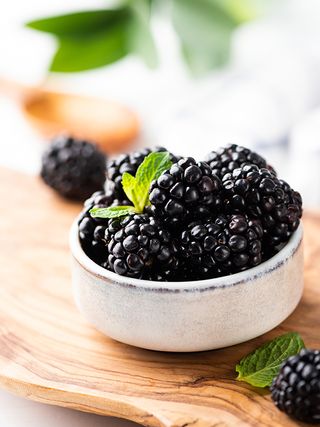
Magier also recommends prioritizing polyphenol-rich foods, which include fruits like cherries, berries, oranges, and apples. "Polyphenols possess antioxidant activity and may feed the good bacteria in the gut and positively impact the gut microbiota profile," she says.
And add bananas to your list. "Bananas have a special type of carbohydrate called resistant starch, which is a prebiotic," Agyeman explains. "Resistant starches work like insoluble fiber where the starch does not digest easily. Bacteria in the gut will ferment this starch, make short-chain fatty acids, and produce more food for the healthy bacteria to thrive. For a quick, filling snack, make peanut butter and banana roll-ups using a tortilla."
3. Greek Yogurt
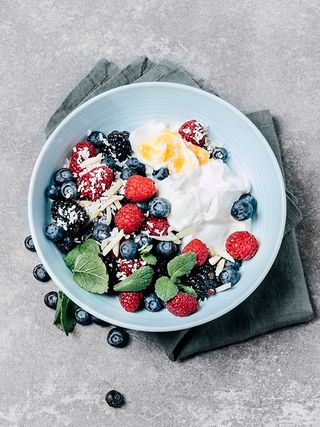
"Greek yogurt is not only a great source of calcium and vitamin D, but it's also full of probiotics," Agyeman says. "Probiotics are foods that have microorganisms that help maintain a healthy gut microbiome and function. When choosing a Greek yogurt, check out the nutrition facts label and go for one that has a lower amount of added sugars."
4. Other Prebiotic- and Probiotic-Rich Foods

Magier suggests including at least one prebiotic and one probiotic food per day to increase the good bacteria in your gut. "Prebiotic foods help increase short-chain fatty acids in our colon—add in foods like barley, oats, potatoes (with skin), beans, and legumes," she says. "They also can reduce inflammation, insulin resistance, and promote stable blood sugar levels. Try probiotic food such as plain yogurt, sauerkraut, kimchi, tempeh kefir, and sourdough bread. Probiotic foods are typically fermented and contain lactic acid bacteria, which may benefit overall gut health by improving intestinal microbial balance."
5. Grains
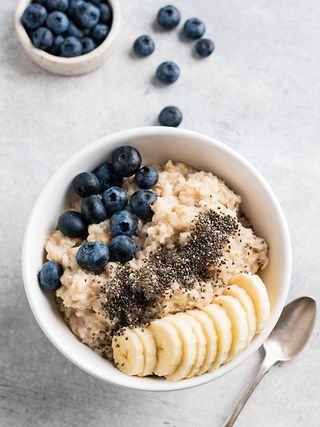
Try a variety of grains. "There are over 100,000 varieties of rice alone on this planet. Even if we try one new grain a year, we won't scratch the surface of what's out there, so why stick to two or three over a lifetime?" Ralutz says. "Millet, amaranth, and fonio are a few examples of delicious grains that are outside of the norm here in North America."
Oats are also great for the gut. "They have beta-glucan, a soluble fiber, which is important for digestion," Agyeman says. "If you are wanting to add more fiber to your diet, try oats and top it with fruit, nuts, and seeds for a filling morning meal."
6. Legumes and Other Fiber-Rich Foods
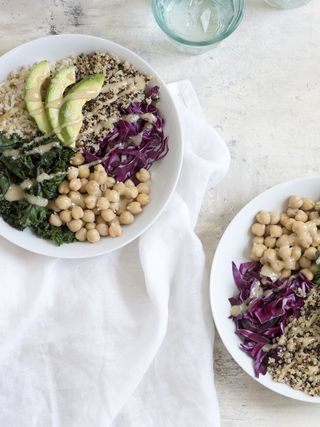
"Eat more fiber-rich foods from whole food sources like fruits, vegetables, whole grains, beans, and legumes," Magier says. "Fiber-rich foods tend to be high in non-digestive carbohydrates, which undergo fermentation by resident microbes in the large intestine. 'Good' gut bacteria produce short-chain fatty acids as a byproduct of fermentation. SCFAs are the colon's main energy source, so it's no surprise that SCFAs are integral to maintaining good gut health. SCFAs are also thought to play an important role in preventing disease and reducing inflammation."
7. Chia Seeds
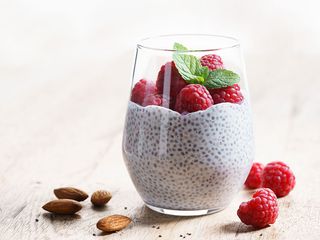
Seeds are good for the gut, too, especially chia seeds. "They may be tiny, but they are packed with fiber," Agyeman says. "One ounce of chia seeds has 10 grams of fiber." You can add them to your smoothie or make a pudding.
8. Mushrooms
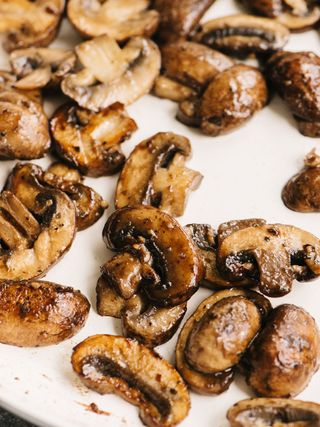
"Enjoy mushrooms for flavor and to benefit the immune system, nervous system, and more! Opt for organic if you can since mushrooms can absorb toxins like heavy metals from their environment," Ralutz says.
9. Herbs
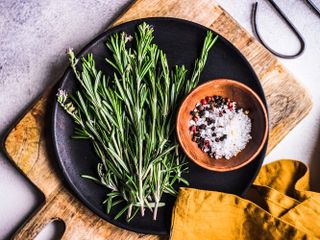
"Herbs are powerhouses for flavor and nutrient density. Start by making one herb sauce like a gremolata or aji verde at the beginning of the week to add to batch-cooked basics," Ralutz says.
10. Kombucha
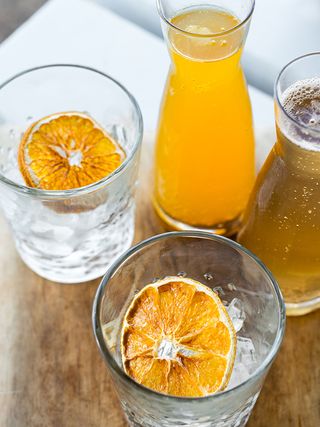
"Kombucha is a fermented tea," Agyeman says. "It contains probiotics from the fermentation process that help promote the good bacteria in the gut." Just be sure to look at the labels to assess any added sugar.
11. Water

"When it comes to gut health and diet, most people think about food," Magier says. "But what you drink is just as important as what you're eating. Be sure you're properly hydrating with water throughout the day to help move food throughout the digestive tract and prevent constipation. Limit sugary drinks and alcohol."
Foods to Avoid
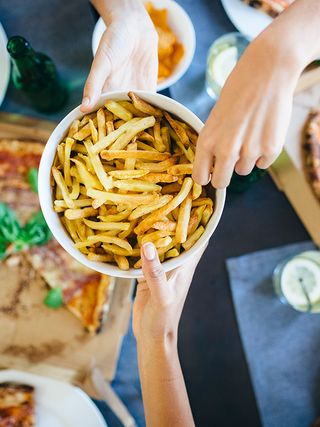
When it comes to what foods to avoid, Agyeman says that everyone has their own individual gut needs, and some people may be more sensitive to certain foods than others. "It's always a good idea to be mindful of the types of foods and amount of food eaten in one sitting that may lead to GI discomfort like diarrhea, nausea, bloating, and other symptoms," she says. "Some studies do show that added sugar in excess may promote inflammation and contribute to an imbalanced gut. Also, drinking alcohol in large amounts may impact your gut health negatively by increasing inflammation and irritating the GI lining."
But in general, you'll want to limit processed foods and the aforementioned added sugar (and even artificial sweeteners). "A diet that has excessive amounts of added sugars, added salt, saturated, and trans fat might make it a bit harder for the gut microbiome to do its job effectively," Agyeman says. "Over time, not only does the gut not absorb nutrients properly as it should, but it can also leak toxins and harmful bacteria into the body."
Next, 11 Things You Can Do to Heal Your Gut Now
Disclaimer
This article is provided for informational purposes only and is not intended to be used in the place of advice of your physician or other medical professionals. You should always consult with your doctor or healthcare provider first with any health-related questions.
Sarah is lifestyle writer and editor with over 10 years of experience covering health and wellness, interior design, food, beauty, and tech. Born and raised in Los Angeles, she attended New York University and lived in New York for 12 years before returning to L.A. in 2019.
In addition to her work on THE/THIRTY and Who What Wear, she held editor roles at Apartment Therapy, Real Simple, House Beautiful, Elle Decor, and The Bump (sister site of The Knot).
She has a passion for health and wellness, but she especially loves writing about mental health. Her self-care routine consists of five things: a good workout, “me” time on the regular, an intriguing book/podcast/playlist to unwind after a long day, naps, and decorating her home.
-
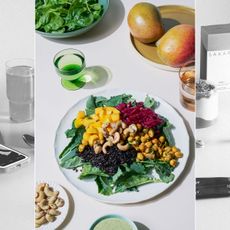 I Only Ate Sakara Life Meals for 30 Days—Here Are 7 Things That Happened
I Only Ate Sakara Life Meals for 30 Days—Here Are 7 Things That HappenedThe brand's 30-Day Fall Reset is finally here.
By Erin Jahns
-
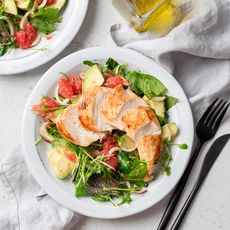 The 6 Warning Signs You're Not Getting Enough Protein
The 6 Warning Signs You're Not Getting Enough ProteinAnd what to eat to up your intake.
By Sarah Yang
-
 Everything This Professional Ballet Dancer Eats to Fuel Her For Performances
Everything This Professional Ballet Dancer Eats to Fuel Her For PerformancesHer grocery staples include high-quality French butter.
By Candice Aman
-
 These 8 Foods Are the Worst for Rosacea—Here's What to Eat Instead
These 8 Foods Are the Worst for Rosacea—Here's What to Eat InsteadControl those flare-ups.
By Sarah Yang
-
 15 Things That Cause Bloating and How to Get Rid of It ASAP
15 Things That Cause Bloating and How to Get Rid of It ASAPTry these.
By Sarah Yang
-
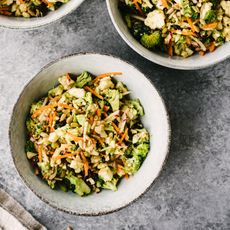 Is the Alkaline Diet Overhyped? What Experts Want You to Know
Is the Alkaline Diet Overhyped? What Experts Want You to KnowHere's how it works.
By Sarah Yang
-
 I'm an Imperfect Dietitian and My Key to Eating Healthy Meals Is Convenience
I'm an Imperfect Dietitian and My Key to Eating Healthy Meals Is ConvenienceTake a peek at my weekly grocery staples.
By Candice Aman
-
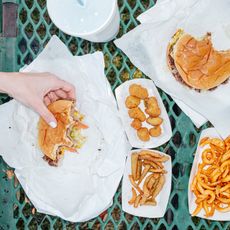 Avoid These 6 Foods—They'll Wreck Your Gut Health
Avoid These 6 Foods—They'll Wreck Your Gut HealthWhat to eat instead.
By Sarah Yang
